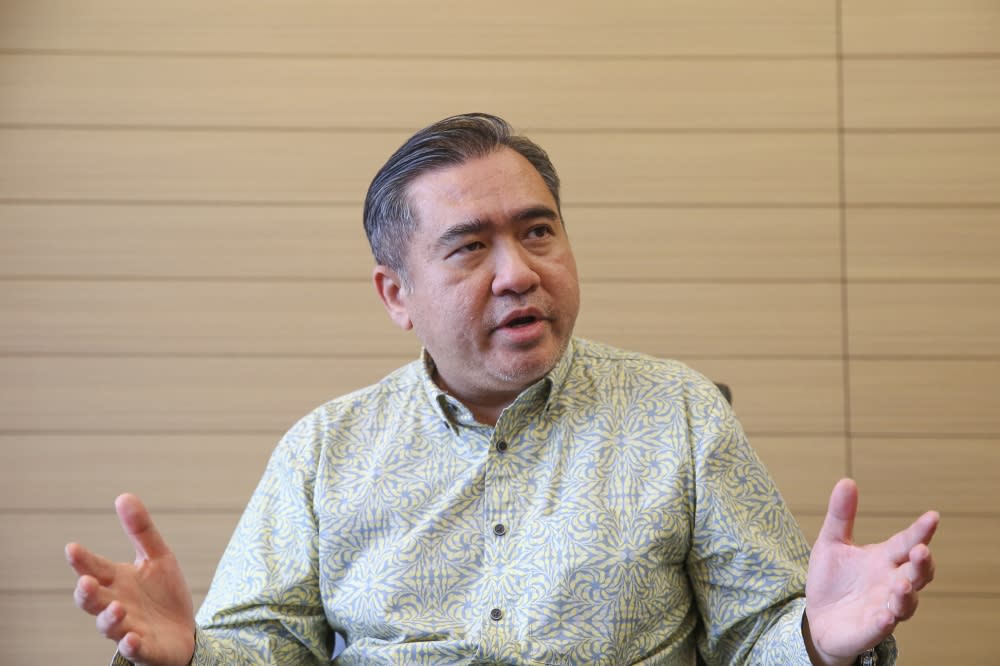Transport Minister Anthony Loke: Restoration of cabotage exemption for undersea cable repairs on the horizon

KUALA LUMPUR, March 20 — The Transport Ministry is working on reinstating exemptions previously approved in 2019 to non-Malaysian vessels conducting undersea cable repairs.
Transport Minister Anthony Loke said a formal announcement will be made once all the necessary processes are finalised.
“It will not take that long, but it is just that some processes need to be done.
“I do not want to make a big hoo-ha out of it, for the reason that, I mean, we have our position and I do not want to turn it into a polemic.
“To put it mildly, a lot of the approaches I am taking, whatever changes we want to make — especially when it involves my predecessor (previous transport minister Datuk Seri Wee Ka Siong) — I try not to turn it into a polemic,” Loke told Malay Mail during an interview here in Parliament, adding that the decision on the national cabotage policy is nothing to shout about.
During Loke’s maiden tenure as the transport minister under the Pakatan Harapan (PH) administration in 2019, a cabotage exemption was granted to non-Malaysian vessels conducting undersea cable repairs.
The exemption, however, was reversed when Wee took over the portfolio in 2020, after the PH administration fell.
“To be fair, that is just one small component, but it is an important component to the data centre industry because data centres have to lay their undersea cables and that is how data centres work — transmitting information and data from all over the world — and once you have a data centre here, you need reliability and stability of the cable.
“So repairing the undersea cable is an important component to that industry and it needs certainty in terms of repair work to be done and repair work can only be done in the open sea by specific vessels, that is where there are no local vessels available,” Loke said, adding that the cabotage exemption was granted in 2019 to shorten the time needed to apply for an exemption.
Previously, Loke had said that the cabotage exemption aimed to speed up undersea cable repairs could take up to 27 days, which had a negative impact on attracting telecommunications and internet investors.
When he announced the exemption, he said the government’s main consideration was increasing Malaysia’s competitiveness in attracting investors, including tech giants Facebook, Google and Amazon, who wanted to construct undersea cables and data centres.
In November 2020, Wee revoked the exemption made by Loke.
Shortly after that, Malaysia Digital Economy Corporation (MDEC) chairman Datuk Rais Hussin issued a statement criticising the move.
Rais said three new cables that were originally planned for landing in Malaysia were now under review.
The cabotage exemption reversal also prompted the review of a planned investment to build data centres worth approximately RM12 billion to RM15 billion.
In April 2021, Facebook and Google revealed they would lay two huge subsea cables linking the West Coast of the United States to Singapore and Indonesia, South-east Asia’s biggest economy and home to a growing number of smartphone users, bypassing Malaysia.
IBM too had in March 2021 announced its plan to shut down its RM1 billion information technology (IT) Global Delivery Centre in Cyberjaya by the end of May that year. The move had cost the country 1,000 highly skilled jobs.
In September that same year, Wee denied in the Dewan Rakyat that his decision to revoke the cabotage exemption policy had led to the Apricot Subsea Cable System Project by Facebook and Google to bypass Malaysia.
Apricot is a new large-capacity, unique-routed optical submarine cable within Asian countries and the United States.
The project, which had been planned since 2018, is a 12,000km system, with a capacity of more than 190Tbps (terabytes per second).



